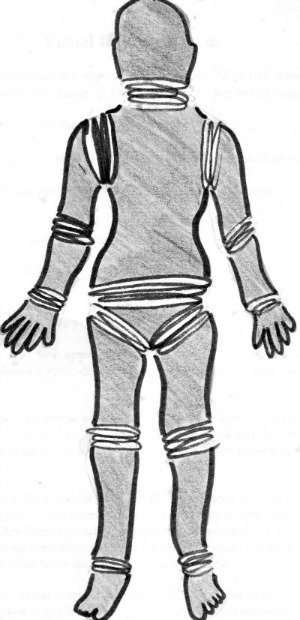Organ recipient grateful for second chance from donation
A first hand account:
November 13, 2014
Kevin Magill, 39, battled fiercely for his life in 2012. He arrived at Houston’s Methodist Hospital in almost complete liver failure and was deteriorating quickly while waiting for a transplant.
Magill had suffered a back injury while active in the Coast Guard and was treating his pain at home.
“[The liver failure] was from Tylenol,” Magill said. “It was just over the counter Tylenol… [Doctors] wanted to do surgery, but due to the nature of my job I went ahead and kept pushing forward. I just took two Tylenol in the morning and two at night.”
September 17 marked the day of his transplant. During the transplant he lost his appendix and gallbladder. However, the aftermath of the surgery was the hardest part.
“It was tough at first,” Magill said. “[The process] put my family through a lot. But the biggest thing was that when I came out of it, there was a little bit of survivor’s guilt.”
Magill’s survivor’s guilt is ongoing, but he has found ways to live his life to the fullest and leave a positive impact.
“It is never going to get away from you, but eventually you accept it,” Magill said. “The way I live my life now is on the same principle that someone had to pass away, so I can live. So every day I make sure it is the best day. I make sure I make someone smile. I make sure I do something good for someone else. That is how my donor lives on through me.”
The transplant has also shifted his view of life.
“Honestly, it brings everything into perspective that I don’t think a lot of people get to experience. I lost my life and I got it back…when people run around and complain about the weather I will take a drink of water and I will just think about how great that water tastes. That is because I got a second chance,” Magill said.
Magill appreciates the hard decision his donor’s family had to make.
“When it comes to organ donation the subject is very macabre. The families that choose to do this are literally life savers…it will save people,” Magill said.
With his second chance, Magill has taken the time to try to contact the family to thank them for the difficult decision they made.
“By the time you send the letter it is six months into it and you’re on the edge as far as ‘do I send this letter and risk rehashing something tragic that happened to their family’ but I did,” Magill said.
The family responded to Magill’s letter, and Magill has never forgotten the gift that they gave him.
“[The donation] hits close to two homes: the one that is receiving and the one that will be donating. One family had to grieve and cry and have immeasurable pain, so that my family didn’t have to,” Magill said.
Editor’s Note: Magill asked us to stress the importance of simple acts that can save lives which everyone can do, such as donating blood. Two transfusions saved his life, and donated blood can help save others’.









